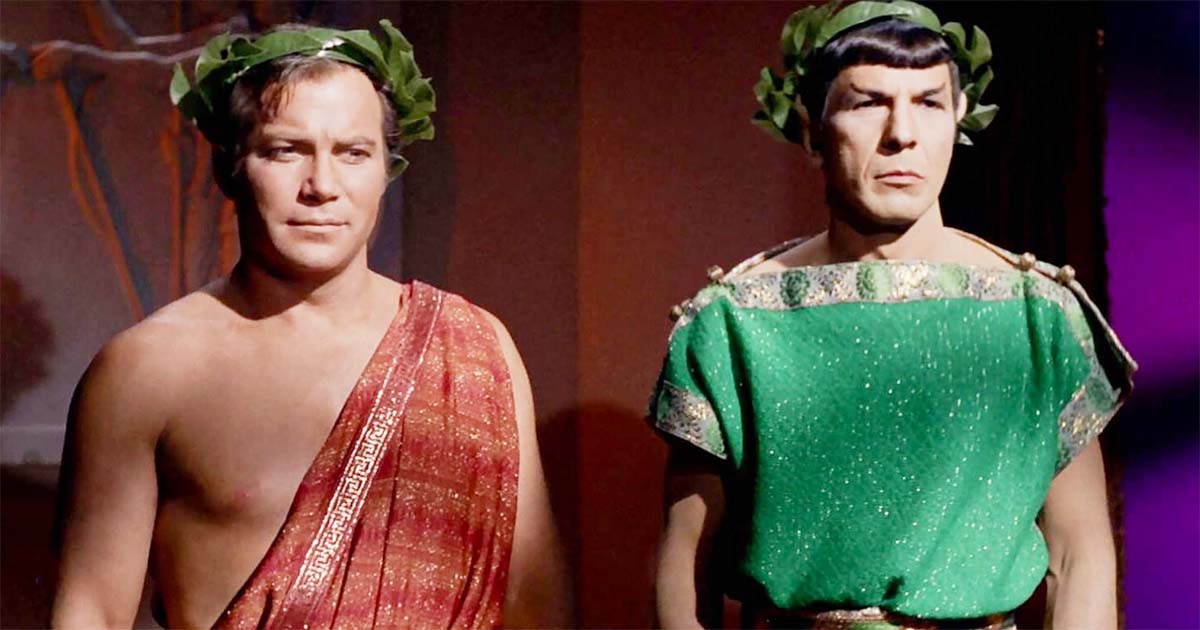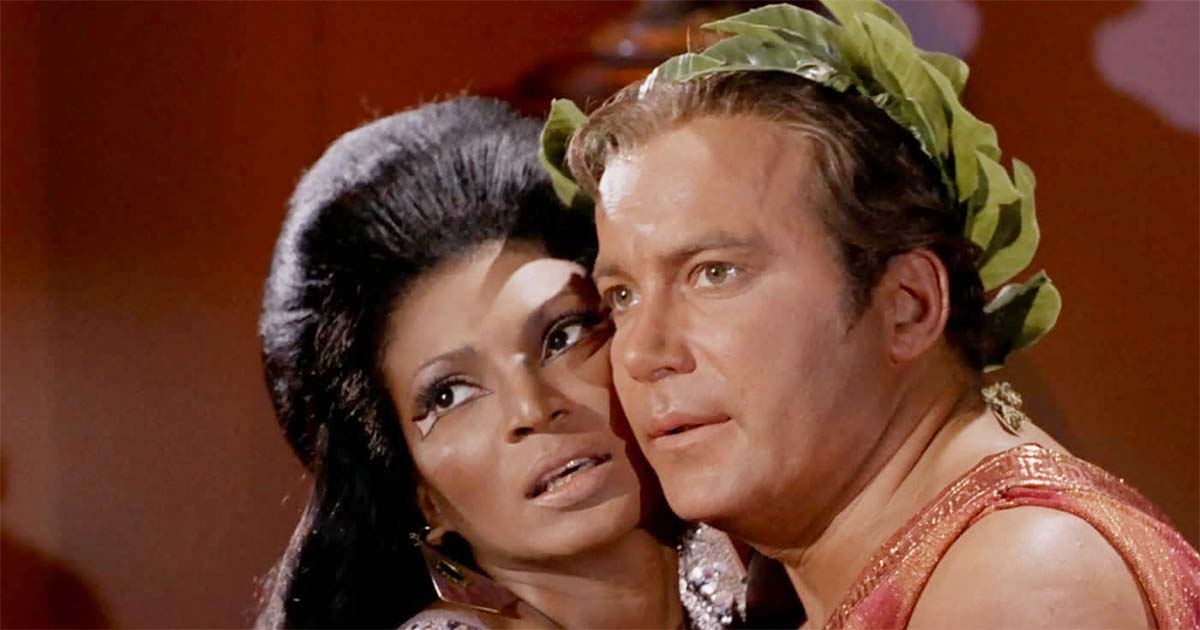Shadows of Power and Cruelty in "Plato's Stepchildren"
In the 1960's the BBC found the telekinetic tyranny in "Plato's Stepchildren" disturbing enough to ban the episode.

"Star Trek: The Original Series" has long been celebrated for its daring explorations of human nature and societal structures. Yet, at times, the series ventured into territory that was deemed too unsettling for its era. One such case is the episode "Plato's Stepchildren," a chilling story of telekinetic tyranny and psychological abuse that the BBC banned for more than two decades.
What made this episode so controversial? To understand, we must look at the strange world the crew of the "Enterprise" encountered and the philosophical horrors that unfolded there.
A World Ruled by Telekinetic Tyranny
The "Enterprise" responds to a distress call from a remote planet inhabited by a humanoid society known as the Platonians. These beings have modeled their culture after the ideals of ancient Greece, but their society hides a dark truth. The Platonians possess immense telekinetic power, which they wield to dominate and humiliate others.
Parmen, the tyrannical leader, forces Captain Kirk, Spock, and Dr. McCoy into degrading acts purely for his amusement. In one of the episode's most infamous scenes, Kirk and Spock are telekinetically manipulated into performing humiliating dances and fights. Parmen even compels Kirk to kiss Lieutenant Uhura, an act that marked television history as the first scripted interracial kiss on American broadcast television.

The crew must navigate both physical and psychological torment as they struggle to free themselves and the enslaved inhabitants from Parmen's grip. Their ordeal is a stark reminder of the destructive potential of unchecked power.
Power, Humiliation, and the Ethics of Leadership
"Plato's Stepchildren" delves into the corrupting influence of absolute power. Parmen and his followers have achieved near-immortality and extraordinary abilities, yet their society has decayed into cruelty and sadism. The Platonians use their powers not for progress or enlightenment but to enforce a rigid hierarchy built on fear.
In contrast, the crew of the "Enterprise" exemplifies a different kind of leadership—one grounded in empathy, dignity, and mutual respect. Kirk's defiance of Parmen highlights the series' recurring theme —true strength lies not in domination, but in the protection and encouragement of others.
The episode's portrayal of forced humiliation and psychological torture is among the darkest in the "Star Trek" canon. It raises uncomfortable questions about the responsibilities of power and the ethical limits of authority.
Protecting Audiences from Psychological Disturbance
The BBC's decision to ban "Plato's Stepchildren" stemmed from concerns over its unsettling content. Viewers had already expressed discomfort with previous episodes that featured graphic or psychological violence. In this case, the depiction of humiliation and cruelty was deemed inappropriate for young audiences.
The interracial kiss between Kirk and Uhura also drew attention, though it was not the primary reason for the ban.
As societal attitudes shifted over the decades, the episode was eventually reintroduced to British audiences in the 1990s. By then, viewers had become more accustomed to complex and darker narratives in television.
The Line Between Art and Censorship
"Plato's Stepchildren" was one of four original "Star Trek" episodes banned by the BBC. Each of these episodes—including "Miri," "The Empath," and "Whom Gods Destroy"—featured themes of violence, madness, or psychological horror.
While "Miri" focused on a dystopian world of abandoned children, and "The Empath" depicted graphic physical suffering, "Plato's Stepchildren" stood out for its emphasis on psychological degradation. The episode's horror lay in its atmosphere of manipulation and control rather than overt violence.
Other episodes in the broader "Star Trek" universe faced censorship for different reasons. For example, "Conspiracy" from "The Next Generation" was banned for its graphic depiction of an exploding head, while "The High Ground" was censored for politically sensitive references to Irish unification.
These varying reasons for censorship highlight the delicate balance between artistic expression and audience protection in broadcast media.
An Image for Its Time
The cultural context of the 1960s shaped both the content of "Plato's Stepchildren" and the reactions to it. The decade saw significant social upheaval, with movements for civil rights, hedonism, and anti-authoritarianism challenging traditional power structures.
The episode's portrayal of a sadistic, hierarchical society resonated with fears of totalitarianism and the abuse of power.
Interestingly, the episode drew inspiration from classical philosophy, blending ancient Greek ideals with science fiction to explore the darker sides of human ambition. The contrast between the Platonians' intellectual heritage and their moral decay underscored the dangers of separating knowledge from ethics —which is exactly what popular culture was and is doing.
Why Plato's Stepchildren Still Matters
Despite the initial controversy, "Plato's Stepchildren" remains a powerful and relevant entry in the "Star Trek" canon. Its exploration of power dynamics, psychological trauma, and resistance to tyranny continues to resonate with modern audiences.
The episode's message about the ethical use of power is particularly timely in an age where technological advancements raise new questions about control and authority.
At its core, "Plato's Stepchildren" is a story about resilience. The crew's refusal to submit to Parmen's cruelty demonstrates the enduring values of empathy and justice that define the best of "Star Trek."
A Tale of Resistance and Hope
"Plato's Stepchildren" challenges viewers to confront the darker aspects of human nature and the responsibilities that come with power. The BBC's ban, though controversial, underscored the episode's impact and its capacity to provoke reflection on social and ethical issues.
Today, the episode stands as a testament to the power of science fiction to explore difficult truths. It reminds us that in the face of cruelty and oppression, dignity and compassion remain humanity's greatest strengths.

